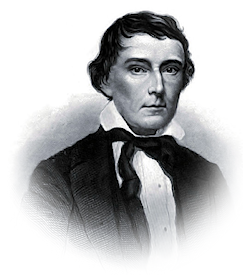Crawfordville [Ga.], June 17th, 1860.
Dear Smith, . . . What will be done at Baltimore tomorrow I can not even conjecture. I fear the rupture begun at Charleston will be complete. I cannot believe that the party will abandon the doctrine of non-intervention. The seceders seem to demand that as a condition of their future cooperation, so I fear we shall have a Richmond nomination anyhow and that a split in the national Democracy will be permanent. I shall go with the national flag as long as it bears upon its folds the principles it bore when I first acted with them. I am in hopes however that they will in any event give that exposition to the doctrine of non-intervention which was set forth in Gov. Johnson’s resolutions in our state convention. Not that I look upon it as essential—I am perfectly satisfied with the Cincinnati platform—but it would remove a mountain load of prejudice off the mind of thousands of the South who have been kept most studiously and wickedly ignorant of Douglas’s real and true position. He holds that all property, negroes and all, should stand upon the same footing of equality in the territories. How far a territorial legislature can encourage or discourage any species of property is the question really at issue, and that question the Supreme Court never has as yet decided. They have decided only that negro property stands like all other kinds, and this Douglas affirms too. I must however close.
P. S.—Write often, and when the nominations are made write to me fully how they take and what is the prospect at the capital.
From Annual Report of the American Historical Association for the Year 1911.
Alexander Hamilton Stephens was an American politician who served as the vice president of the Confederate States from 1861 to 1865. After serving in both houses of the Georgia General Assembly, he won election to Congress, taking his seat in 1843. After the Civil War, he returned to Congress in 1873, serving to 1882 when he was elected as the 50th Governor of Georgia, serving there from late 1882 until his death in 1883.
J. Henley Smith was a Georgia journalist.
